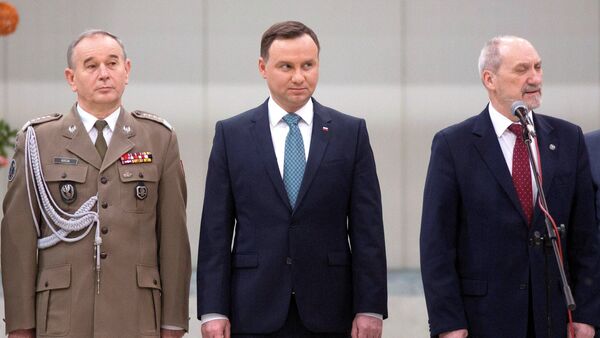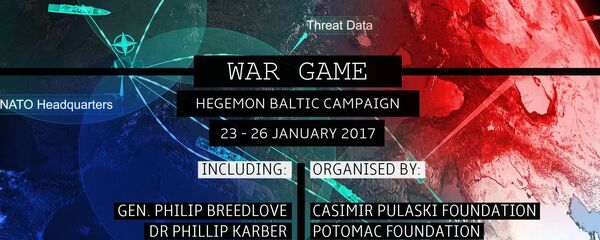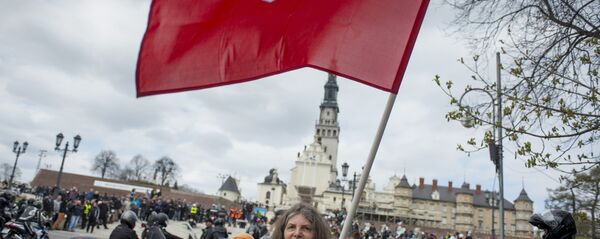The General Staff of the Polish Armed Forces announced Gocul's intent to resign on Friday, publishing his official letter of resignation on their website.
"My service in the position of Chief of the General Staff of the Polish Armed Forces is nearing its end. On January 31, 2017 I will finish my professional military service and say goodbye to the uniform," Gocul, 53, wrote in the letter.
In his letter of resignation, the officer alludes to changes in the global security environment, and to "difficulties in predicting the course of events."
Somewhat cryptically, Gocul ends the letter with an expression of gratitude to the veterans of the service, "to all the institutions, organizations and individuals who express their constant concern about the fate of our country. For your support and understanding I express my gratitude to the military families."
Poland's PAP news agency said that it was not immediately clear who would replace Gocul.
Polish President Andrzej Duda announced that he would be taking steps to reorganize the leadership of the military late last year. The most recent reforms were carried out in 2014, when command of the military was divided into three sections: the General Staff, the General Command and the Operational Command of the Armed Forces.
Gocul's resignation is not the first major change. Last month, Lieutenant General Miroslav Rozanski resigned amid pressure to do so by Defense Minister Antoni Macierewicz.
Polish media have speculated that the resignation of the high-ranking officers may be connected to their dissatisfaction with the direction Macierewicz is taking defense policy, although Warsaw has been tight-lipped about the reasons for the shakeup.
Last year, he announced that Poland would soon be doubling the size of its army in response to the "threat from Russia." Two weeks ago, commenting on the deployment of thousands of US troops to Poland, Macierewicz declared that the post-WWII order established at Yalta was "over," leading to concerns from European observers that Warsaw may be looking to regain some of its lost territories in Ukraine, Belarus, or Lithuania.
Last year, the outspoken official even accused Russia of inventing Islamic terrorism, and claimed that Russia deliberately downed the Polish presidential plane which crashed in Smolensk in 2010, killing President Lech Kaczynski and other high-ranking officials. Last May, a group of high-ranking officials called on Macierewicz to step down, including for his comments about the 2010 plane crash and for entertaining the idea of a Jewish conspiracy for global domination.




